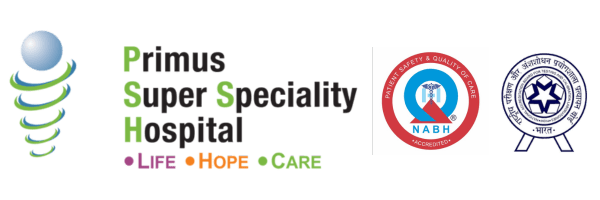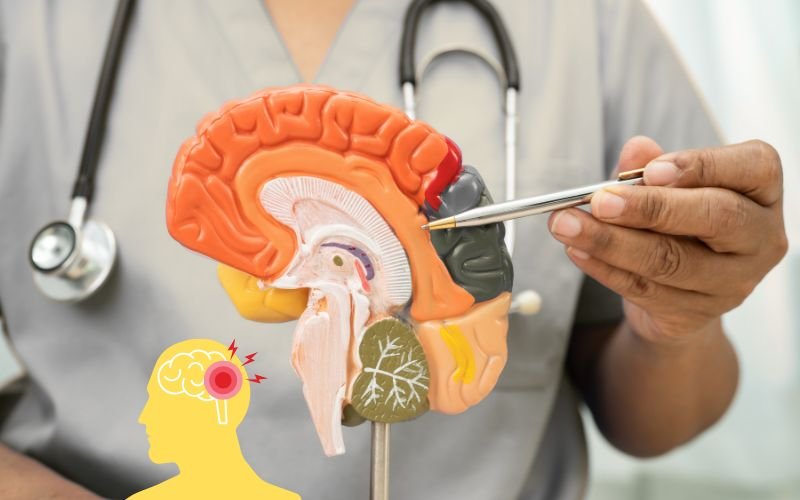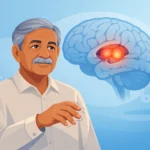Hydrocephalus is a condition where cerebrospinal fluid builds up in brain ventricles. The extra fluid raises pressure inside the skull. This pressure can harm brain tissue and change function. Families often ask about Hydrocephalus treatment without surgery. This article reviews options, limits, and expert care. It also guides readers on finding a Neurology hospital in Delhi.
Hydrocephalus meaning is easy to explain. It means water on the brain. Neurology Doctors in Delhi use imaging to confirm the diagnosis. Causes differ by age and by type. In infants, the skull may enlarge quickly. In adults, symptoms vary by cause and pace. Normal pressure Hydrocephalus shows slow changes in gait, thinking, and bladder control. Early detection helps planning for better outcomes.
Why Hydrocephalus surgery remain the only treatment in most cases?
Many hydrocephalus types need surgical drainage. Shunts divert fluid from the brain to the abdomen. Shunts reduce pressure and protect brain tissue. Another option is endoscopic third ventriculostomy. This creates a new path for CSF to flow. These are the standard procedures used worldwide. Surgery offers durable symptom relief in many cases. For adults with progressive symptoms, surgery often gives clear benefit.
When Neurosurgery doctor in Delhi tries hydrocephalus treatment without surgery?
Doctors do offer non-surgical trials in select cases. A large volume lumbar puncture removes CSF to test the response. Repeated lumbar drainage can act as a trial for shunt benefit. In infants, ventricular taps or external drains can be temporary steps. Medicines may treat infections or reduce CSF production in some cases. However, medicines rarely cure chronic hydrocephalus. Non-surgical steps help, but often do not replace surgery.
Normal Pressure Hydrocephalus: a special case
Normal Pressure Hydrocephalus often presents in older adults. It causes walking difficulty, cognitive change, and urinary urgency. A lumbar puncture may improve symptoms temporarily. This test helps predict shunt success. Many clinicians use the drainage test to decide on surgery. Some patients improve after the test. Others need permanent surgical drainage to maintain gains.
Medical and supportive care for Hydrocephalus in Delhi
Neurologist treats causes and symptoms. Antibiotics treat infections that cause hydrocephalus. Steroids reduce inflammation in some situations. Diuretics may lower CSF production in select patients. Physical therapy helps balance and strength. Occupational therapy supports daily activities and safety. Speech therapy helps those with language or swallowing changes.
Infant hydrocephalus and early treatment in Delhi
Infants need careful and fast action. Rapid head growth and tense fontanelles indicate trouble. Temporary measures like tapping or external drains lower pressure. These steps let doctors plan safe, permanent surgery. In many infants, shunt placement remains the long-term solution. Timely surgery can protect brain development. Families should seek Neurology hospital in Delhi with pediatric neurosurgery and neonatal support.
Adults with hydrocephalus who might avoid surgery
Some adults have mild or stable symptoms. Others have high surgical risk due to health issues. In such cases, Neurology doctors may choose monitoring and therapy. Repeated lumbar taps sometimes provide relief and time. For patients with secondary causes, treating the cause can reduce CSF build up. Still, a lasting cure without surgery is rare for most patients.
Risks and limits of non-surgical care
Non-surgical care has clear limits. Lumbar drain trials carry infection risk. Repeated taps may offer short relief only. Medicines often fail to control chronic CSF accumulation. Delay in definitive treatment can worsen outcomes. Experienced teams weigh the immediate benefits and long term risks before delay.
Hydrocephalus surgery benefits and risks
Surgical drainage can improve gait and cognition in many adults. For infants, hydrocephalus surgery helps brain development and survival. Shunts can malfunction or get infected. Endoscopic procedures may not work for some causes. Yet for many patients the benefit outweighs the risk. Experienced neurosurgeons in Delhi reduce complications and improve outcomes.
How neurosurgeons in Delhi evaluate each case
A neurosurgeon starts with a clear history and exam. They check gait, cognition, and vision. Scans like MRI show ventricular enlargement. Lumbar puncture tests gauge response to CSF removal. Other tests include intracranial pressure monitoring in select cases. For infants, head measurements and ultrasound are vital. These steps guide shared decision making between doctor and family.
Evidence from research and guidelines
Research supports shunts for many hydrocephalus types. For Normal Pressure Hydrocephalus, CSF drainage tests predict benefit. Pediatric guidelines favor early neurosurgical planning in many infants. High-quality trials vary by cause, yet clinical practice follows best available evidence. Discuss current research with your surgeon for clarity.
Real-life outcomes and patient stories
Many adults with NPH regain walking and mental clarity after shunting. Infants with timely surgery often meet developmental milestones. Outcomes depend on cause, timing and overall health. Long term follow up prevents and manages shunt problems. Patient stories show that correct care improves life and function
Long-term follow-up and rehabilitation matter a lot. After any procedure, patients need regular checks. Shunt systems need periodic review and imaging. Physical therapy continues after hospital discharge. Rehab helps with walking, balance, and daily tasks. Cognitive therapy aids memory and attention. Social workers and therapists join the care team.
Cost and access are real concerns for many families. Treatment costs vary by Hospitals and by the chosen procedure.
Hydrocephalus is complex, but clear care is available. Trials can help in some cases. For many patients, surgical drainage gives durable benefit. Seek an experienced team for diagnosis and follow up. If you are in Delhi, consider major centers with neurosurgery, rehab, and pediatric support. For comprehensive evaluation and modern care, you may contact large hospitals like Primus Hospitals for expert help and continued follow up.













